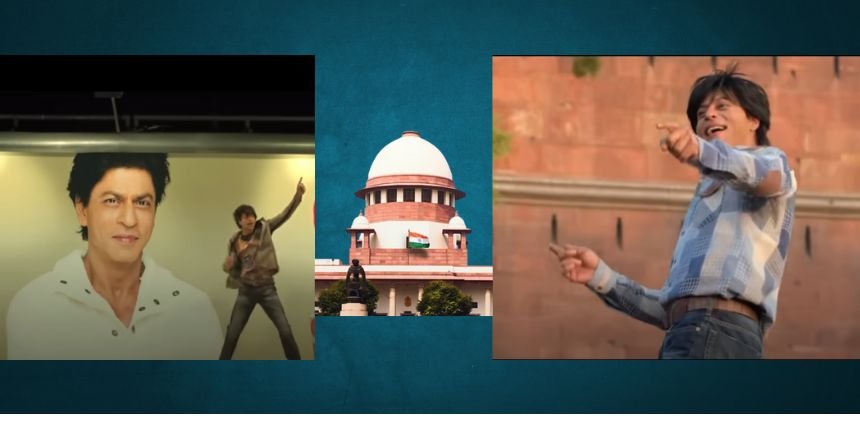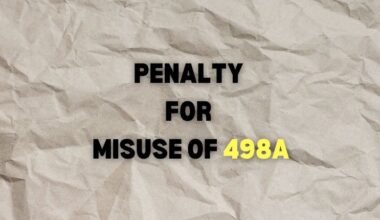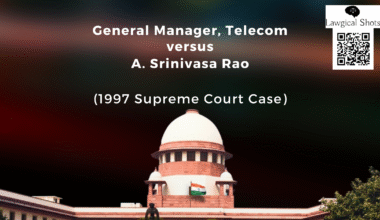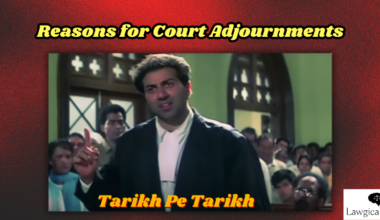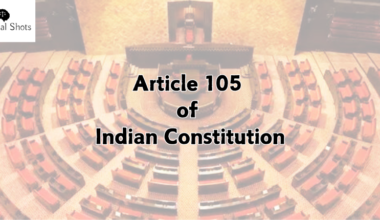Does a movie teaser bring in any contractual obligations for the viewers? If what is shown in the teaser is different in the movie, or completely missing, does it mean deceiving the audience? The Supreme Court answered and reasoned such questions around what means promise in law, while dealing with a challenge against ‘Jabra Fan’. The Division Bench of Justice Pamidighantam Sri Narasimha and Justice Aravind Kumar were dealing with Civil Appeal No 4422 of 2024 in Yashraj Films Pvt. Ltd. v. Afreen Fatima Zaidi and anr. (decided on April 22, 2024).
Factual Background
The matter pertains to the promotional trailer of 2016 film ‘Fan’. The same was circulated on both television and internet. The said trailer contained a video song ‘Jabra Fan’. The complainant said that she decided to watch the movie with her family with the expectation to watch the song in the upcoming movie. However, she later found that the song was not there in the movie. Therefore, she felt cheated, deceived by the makers, underwent mental agony and accordingly claimed damages of Rs 60,550.
When she approached the Consumer Courts, the District Court dismissed the complaint. The State Commission, however, held it to be deficiency of service based on ‘contractual obligation’ and ‘unfair trade practice’ and awarded Rs 15,000 for mental harassment and cost. The NCDRC also supported the complainant’s stance of implied promise.
Court’s Analysis
The Court considered the following questions:
- What are the legal implications of a promotional trailer (promo/teaser) circulated before the release of a movie?
- Do promos/trailers create any contractual relationships/obligations akin to them?
- Is it an unfair trade practice if the contents of the promotional trailer are not shown in the movie?
Movie Trailer and Contractual Relationship
The Bench acknowledged a promotional trailer as an advertisement for a film. It hinted towards commercial speech including advertisements being protected by freedom of speech under Article 19(1)(a) of the Constitution of India. It further clarified that deceptive, unfair, misleading and untruthful commercial speech was excluded from such protection. Thus, subject to restrictions, the producers/advertisers enjoy freedom to creatively and artistically promote their goods and services. The Bench also touched upon the informational purpose and artistic expression of an advertisement, meant to grab viewers’ attention. The Court cautioned that a song, dialogue or short visual in a trailer may be used to popularise/create a buzz about film release, and viewers may be encouraged to watch it. However, whether it creates any right or liability completely depends upon the civil and statutory legal regime.
Also read – Supreme Court discusses time limit for filing writ petition in High Court
Movie Teaser v. Promise in Law
The Bench explained that “The essential element of an ‘offer’ or ‘proposal’ for the formation of a contract has not been satisfied in the present case. A person makes an offer or ‘proposal’ when he signifies his willingness to do something with a view to obtain the assent of another person. When the other person signifies his assent, the proposal gets accepted and becomes a ‘promise’. A proposal is therefore a prerequisite to a ‘promise’ and a ‘contract’.”
The Court clarified that a promotional trailer is unilateral as against a promise in law, only meant to encourage viewers to purchase movie tickets. It is an independent transaction and itself not an offer which neither intends to nor can create a contractual relationship. Therefore, there was no possibility of it becoming a promise. It further explained that “The transaction of service is only to enable the complainant to watch the movie upon payment of consideration in the form of purchase of movie ticket. This transaction is unconnected to the promotional trailer, which by itself does not create any kind of right of claim with respect to the content of the movie.”
Relative Provisions in Consumer Protection Act, 1986
While adverting to the provisions of Consumer law, the Court discussed its purpose, definition of consumer, entitlement to file a complaint for ‘deficiency in service’ and ‘unfair trade practice’. The Apex Court further perused definitions of service and deficiency. While acknowledging the status of a person watching movies as a consumer, the Court considered whether there was a deficiency in the entertainment service availed by purchasing a ticket. Eyeing the complaint containing assumption of deficiency, the Court expressed that “the deficiency alleged in the complaint arises out of the complainant’s own expectation that the song would be a part of the movie.” The Court picked at the assumption of the trailer being an offer or promise.
Unfair Trade Practice
The Court perused the definition and hinted towards the stance of Courts that a false statement misleading the buyer was essential for unfair trade practice. It explained that only substantial and material discrepancies were covered under unfair trade practice, and that the ingredients were not made out in the instant case. The Court further highlighted that the burden to prove unfair trade practice was upon the complainant who did not bring anything on record to show the same. It said that “Services involving art necessarily involve the freedom and discretion of the service provider in their presentation. This is necessary and compelling by the very nature of such services. The variations are substantial, and rightly so. Therefore, the standard by which a court of law judges the representation, followed by the service, must be different and must account for the creative element involved in such transactions.”
Decision
The Apex Court held that promotional trailers are unilateral and do not qualify as offers eliciting acceptance. Further, they do not transform into promises, much less agreements enforceable by law. Therefore, the Court allowed the instant appeal and set aside the impugned order. It denied any deficiency in service or unfair trade practice.
